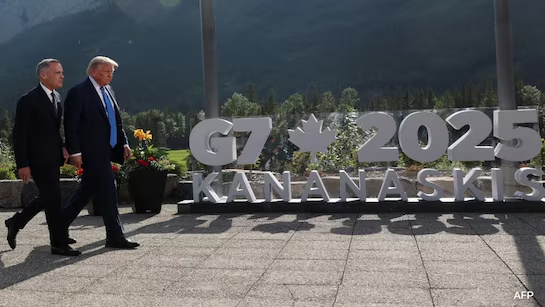At the recent G7 summit, held in Italy, leaders from the world’s top economies issued a strong joint statement voicing support for Israel and labeling Iran as a major source of instability in the Middle East. The statement comes at a critical time, as tensions between Israel and Iran escalate, raising concerns over broader conflict and energy market disruption.
What the G7 Leaders Said
In their declaration, G7 countries emphasized Israel’s right to self-defense in response to recent attacks and described Iran as a destabilizing force due to its support for militant groups and continued nuclear ambitions. The group also reaffirmed that Iran must never be allowed to develop nuclear weapons.
The statement included the following key points:
- Clear support for Israel’s actions in defense of its sovereignty.
- Condemnation of Iran’s regional activities and missile programs.
- A renewed call for a diplomatic solution to prevent further escalation.
- Commitment to maintaining stability in global energy markets.
Rising Tensions in the Region
The summit occurred just days after Iran and Israel exchanged deadly airstrikes. Over 200 civilians were reportedly killed in Iran, while Israeli cities also suffered casualties. These events have raised alarm in global markets and prompted swift international responses.
President Donald Trump, who attended the summit briefly, returned to the U.S. early to address the growing crisis. Before his departure, Trump reiterated U.S. commitment to Israel and urged American citizens to evacuate Tehran.
Global Impact
Energy markets responded with volatility. Although major oil shipping routes remained open, traders remain on edge amid fears that prolonged conflict could impact oil supply and drive prices higher.
The G7 leaders also addressed the need for humanitarian aid in Gaza and emphasized de-escalation across the region, highlighting the importance of dialogue even while supporting Israel’s security concerns.
Reactions to the Statement
Iran’s government swiftly condemned the G7’s remarks, calling them biased and ignoring what it called Israeli aggression. Iranian officials also criticized Western nations for contributing to regional unrest through arms sales and political interference.
Meanwhile, Israel welcomed the G7’s support and called for continued international pressure on Iran to halt its nuclear and missile programs.
What’s Next?
As tensions rise, the G7 countries are expected to push for a coordinated diplomatic approach, possibly through the United Nations. At the same time, nations are preparing for any fallout that might impact global supply chains, energy prices, or military dynamics in the Middle East.
The summit’s outcome highlights not only solidarity with Israel but also growing concern over Iran’s role in the region. With pressure mounting, the next few weeks will be critical in determining whether diplomacy can prevent further escalation.





